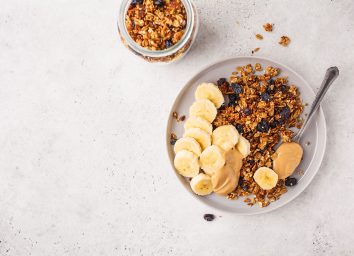Secret Side Effects of Eating Granola, Says Dietitian
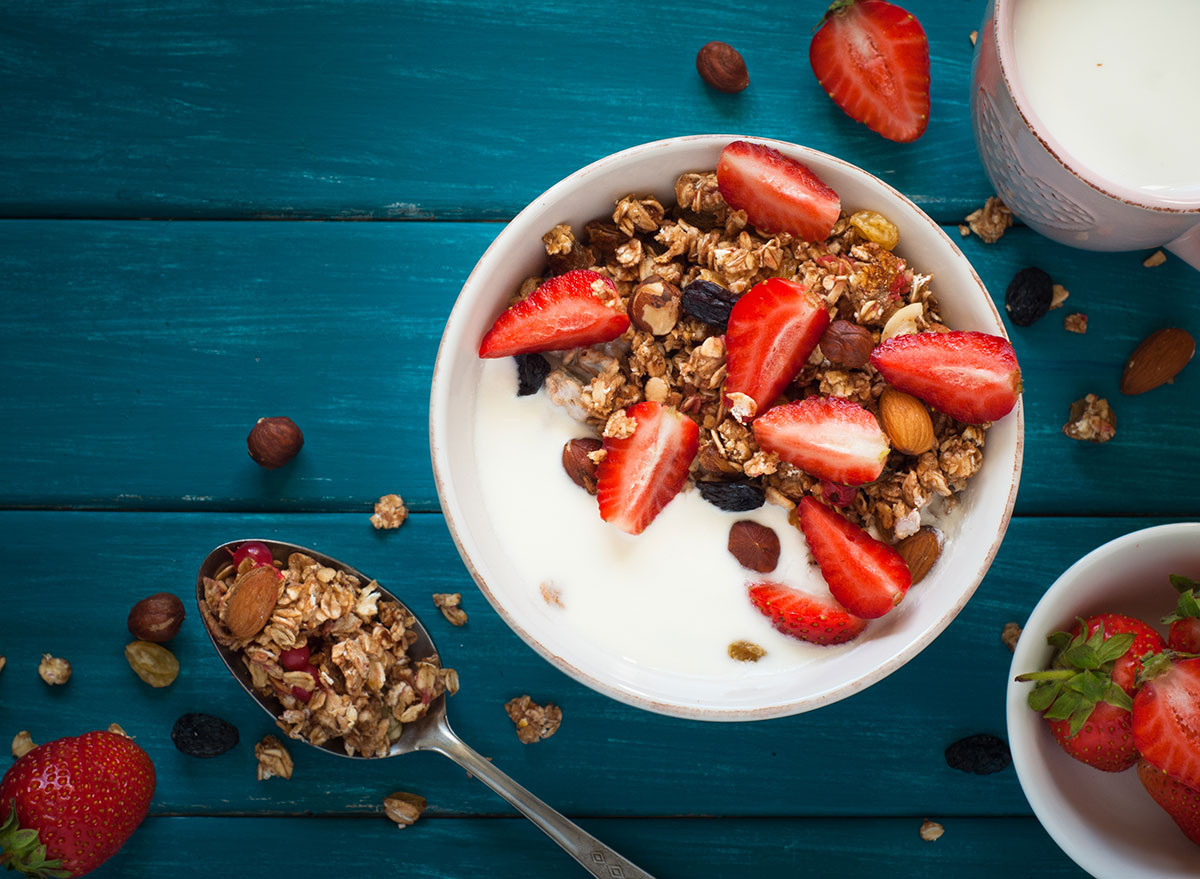
There's nothing like a bowl of granola with some yogurt and berries in the morning. It's sweet, crunchy, and filling. Even though we love eating granola, it's sometimes hard to tell if it's actually a healthy way to start the day.
"Granola might be the #1 food you think is super healthy but is in fact calorically dense and high in added sugar most of the time," says Laura Burak, MS, RD, author of Slimdown with Smoothies, and founder of Laura Burak Nutrition.
So if granola isn't always as healthy as we may think, what are things we need to look out for? Here's what you need to know, and for more healthy eating tips, make sure to read The 7 Healthiest Foods to Eat Right Now.
You might consume a lot of added sugar.
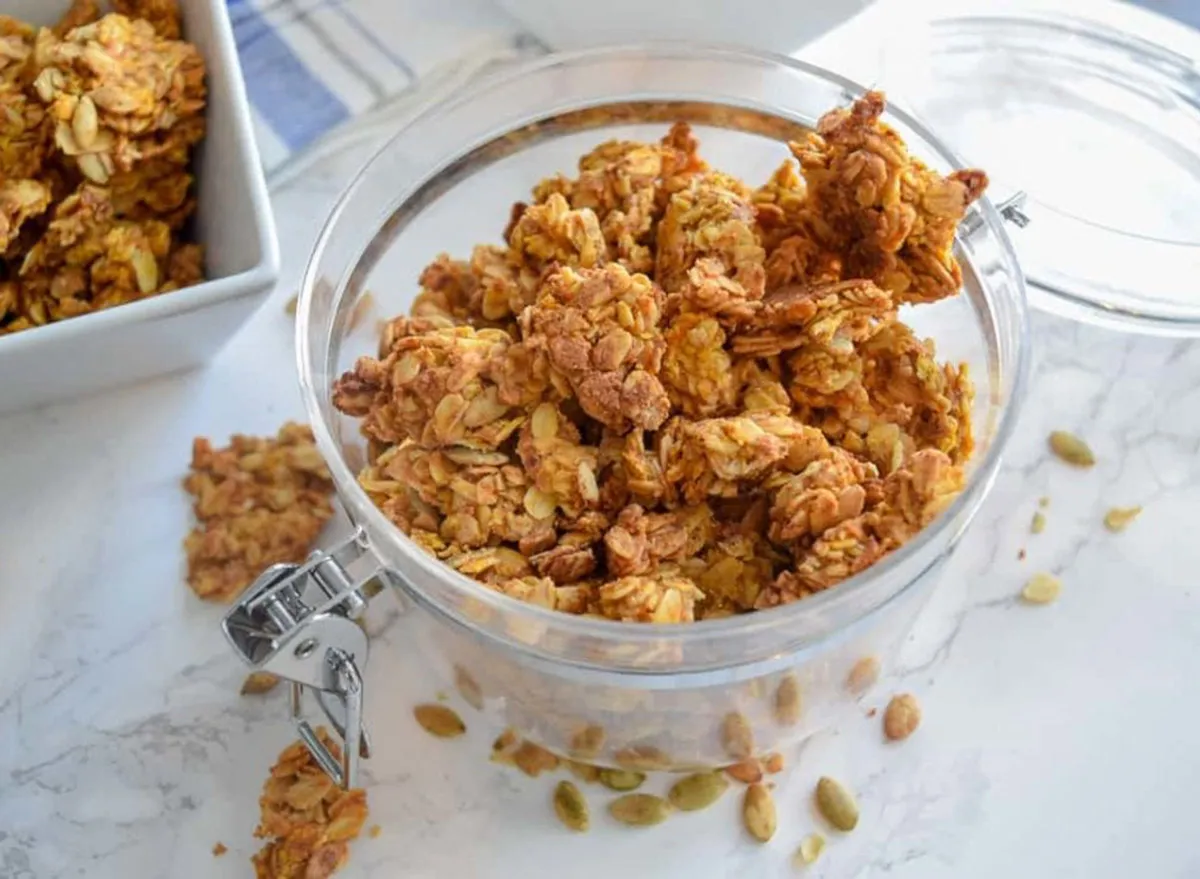
We might not realize it, but granola is often loaded with sugar.
"Typically, granolas are sweetened with honey, syrups, or another form of added sugar and often contain dried fruit that adds to the sugar content," says Burak.
For example, there are 11 grams of added sugar in just a 1/2 cup serving of Bear Naked Chocolate Granola and 9 grams of added sugar in a 1/3 gram serving of KIND Vanilla Clusters.
"Make sure to check the label and watch out for several forms of added sugar, which can be disguised as healthier-sounding words like coconut sugar and syrups," suggests Burak.
Here's What Eating Added Sugars Does to Your Body.
You may consume more calories than you planned.
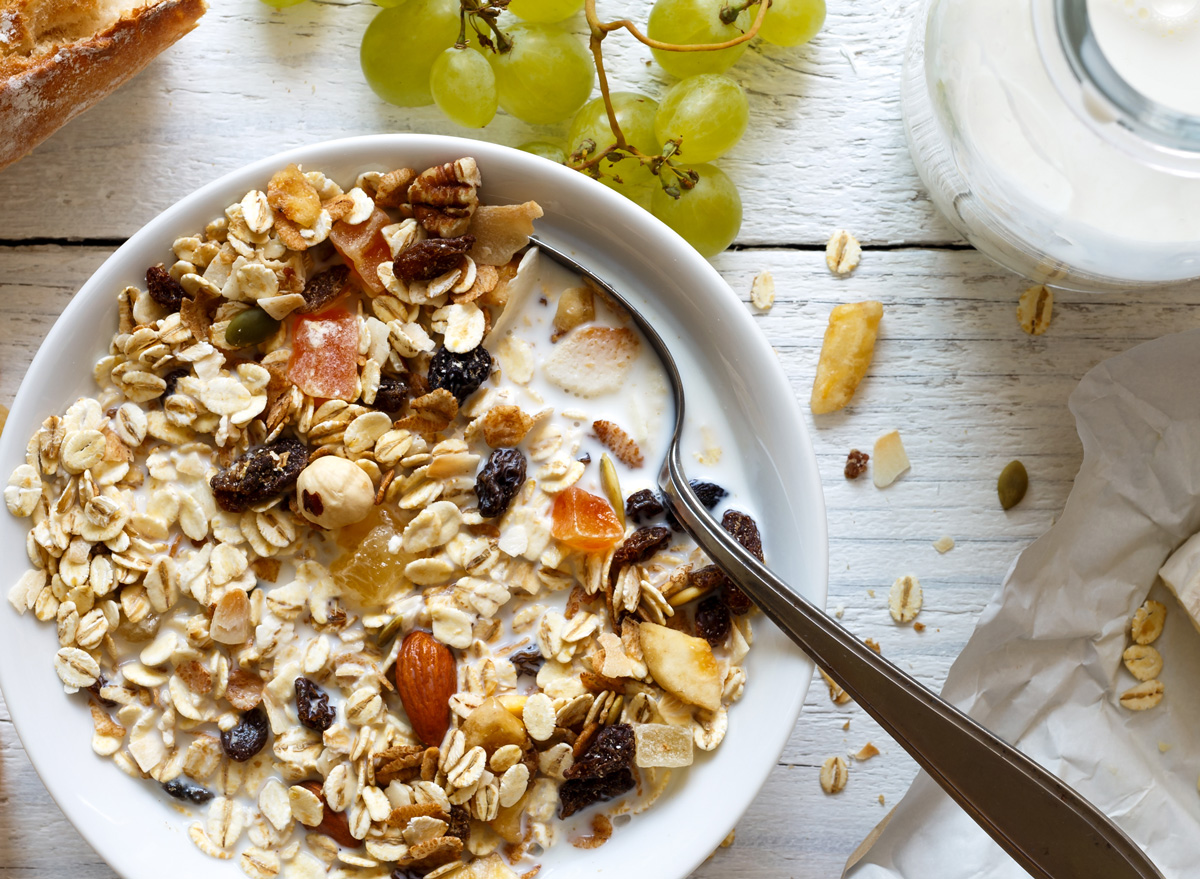
If you're counting calories, granola can be something to pay attention to. Burak points out that "serving sizes for granola are usually small (around 1/4 to 1/2 cup), but the calories are high due to calorically-dense ingredients like nuts, seeds, dried fruit, oats, chocolate, oils, and sweeteners."
This isn't always a problem, especially if you choose granola with less added sugar and more nutrient-dense grains or nuts. But if you're watching your calories, granola can be tricky.
"Granola is a food I often recommend to clients who want to gain weight, as it is an easy way to add calories," says Burak.
Need help picking your next bag? Browse our list of The World's 10 Healthiest Granolas.
You can get a good amount of healthy fat.
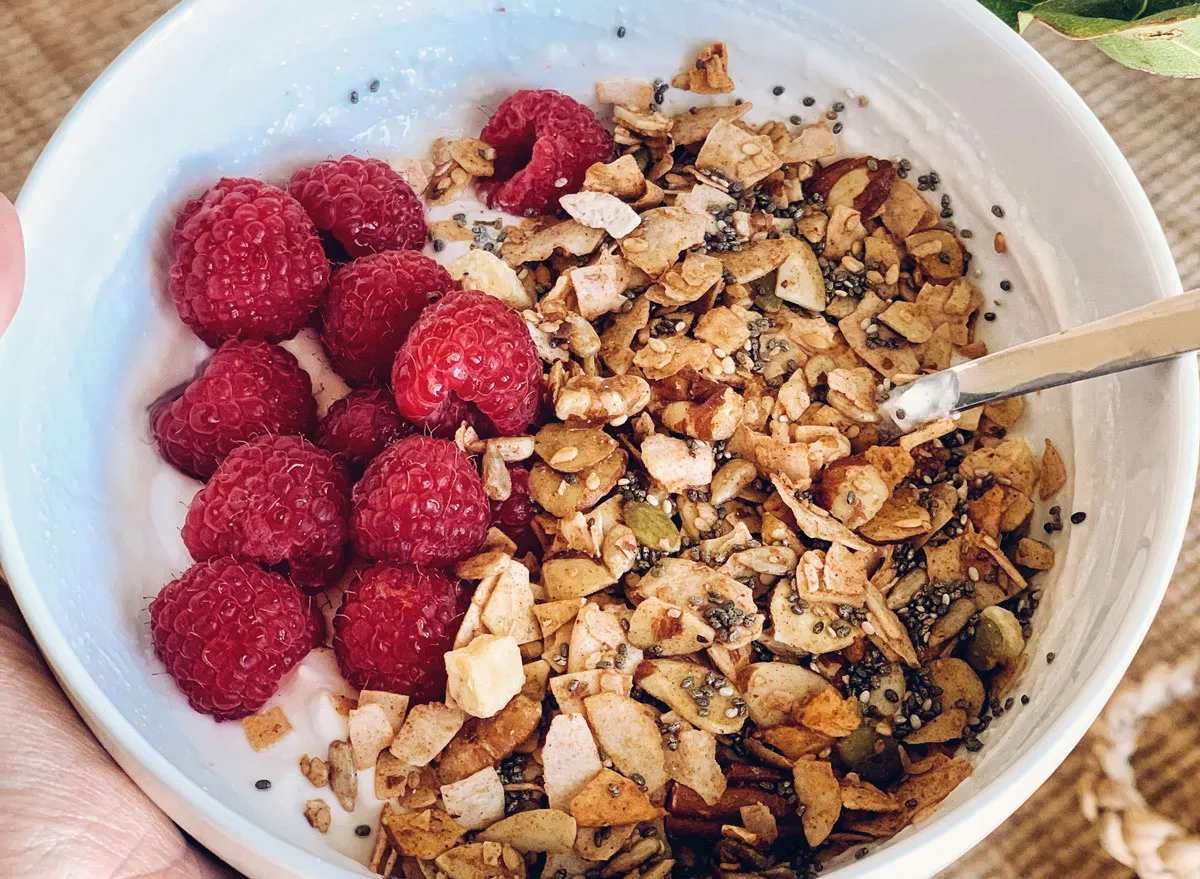
It may require some careful searching, but certain types of granola are made with healthy nuts and seeds, which are really great sources of healthy fats. According to Nutrients, nuts have been linked to a reduced risk of heart disease and gallstones, which has a lot to do with their makeup of unsaturated fatty acids and many other helpful nutrients.
The Nutrients report also associates nut consumption with lower inflammation, reduced blood pressure, and lower cholesterol. If you're looking for a granola that is heavier in nuts and seeds and lower in processed sugar, try something like NuTrail Keto Granola or Paleonola Grain-Free Granola. Or even make our Nut and Coconut Granola!
You may consume some added preservatives.
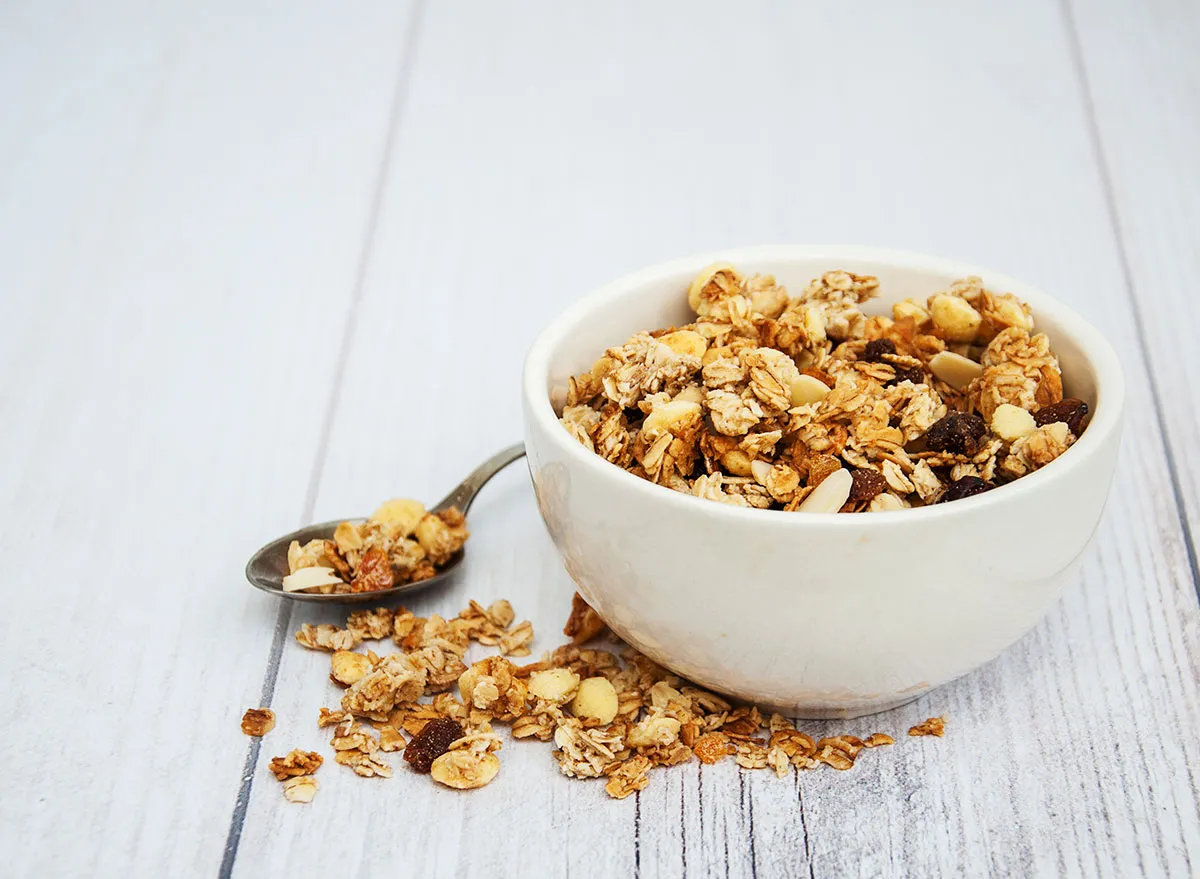
We sometimes assume that granola automatically means healthy, clean, and natural. However, it's important to notice what certain brands actually put in their box of granola.
"Depending on the brand, granolas, although touted as a healthy superfood, can be just as processed as any other cereal or snack food on the shelf," says Burak.
When something is made to last on a grocery store shelf, it will most likely have some added preservatives.
"Words like 'gluten-free,' 'high-fiber,' 'natural,' and 'whole-grain don't always mean the product is healthy, so make sure to take a look at the ingredients, amount of added sugar, and serving size to get a better idea of the granola you're buying," says Burak.
Love granola? Make sure to read the label!
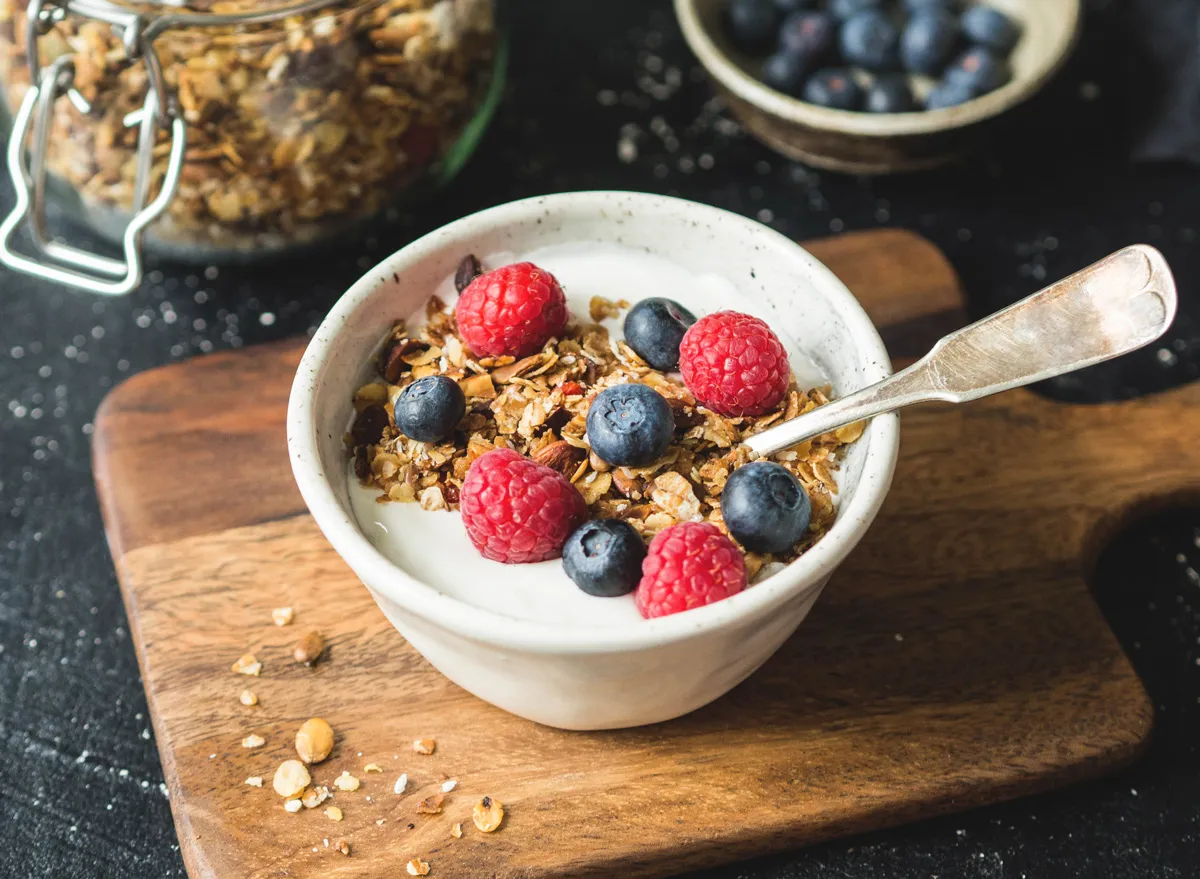
None of this information means that we have to go and toss our favorite granola in the trash. We can get a lot of nutrients from certain types, and it's nice to have a sweet treat for breakfast every now and then!
The most important thing to remember is that reading the label is a great way for us to become more aware of what we are eating.
"When it comes to adopting a healthier diet, all it takes sometimes is learning how to be your own detective, which entails digging a little deeper with a food label and not always falling for the marketing on the package," says Burak.
Get even more healthy tips straight to your inbox by signing up for our newsletter! After, these next:
